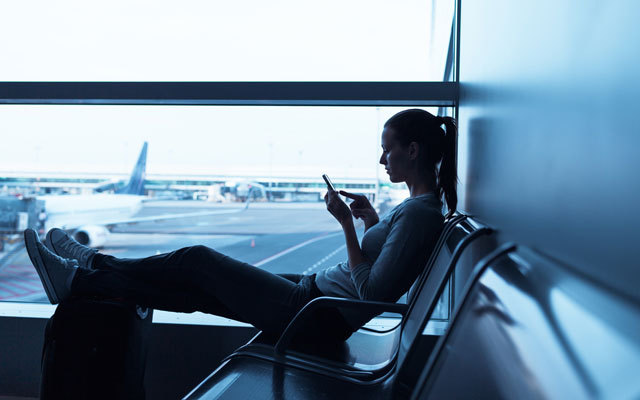Travellers across the world are increasingly prioritising value over cost, demanding more autonomy over personalisation and using digital solutions to research and manage their trips, according to findings from Travelport’s Global Digital Traveler Research 2019.
The report, which surveyed 23,000 people from 20 countries, found that when booking a flight, value is a top priority for over four out of five (86%) travellers today with just one in five (18%) now booking solely on cost. This trend is apparent across all age groups led by baby boomers (91%) who prioritise value marginally more than younger generations.

To find offers of value, travellers “nearly always” use a combination of travel review sites like TripAdvisor (42%), price comparison sites like Kayak.com (38%), recommendation sites like Kiwi.com (36%) and have conversations with travel consultants (31%).
But when shopping online, travellers have mounting frustrations as to knowing which companies they can trust (50%, up 6% from 2018), added the report. They are also frustrated by not knowing whether online reviews are genuine (50%) and the time required to find the right option (43%).
Travelport also found that travellers want more control and transparency when it comes to personalisation. Across all age categories, when booking a flight, travellers typically want to personalise their own experience (42%) through add-ons like extra legroom, additional baggage allowance and meal upgrades. One quarter (24%), however, prefer to receive branded offers, such as Flexi and Saver, which provide a basic level of personalisation.
When attempting to personalise their experience, however, a growing number of travellers are getting frustrated by not being able to understand what is included as standard (52%, up 12% from 2018) and not knowing what add-ons are available to them (56%).
Travellers are also increasingly frustrated by companies they regularly use not remembering their preferences (35%, up 4% from 2018). Frustration with this is most prevalent among Gen Y (39%).
Digital solutions are increasingly driving decision-making around travel bookings, Travelport also found. Nearly three quarters (71%) of travellers today consider it important whether an airline offers a good digital experience when booking a flight, up +3% from 2018. Over half (58%) also consider this when choosing accommodation, up +7% from 2018.
When researching a trip, three quarters (77%) of travellers have reviewed videos and photos posted by travel brands on social media, up 2% from 2018. One third (36%) of Gen Y travellers today “nearly always” do this in the research phase. Facebook is considered the most influential social media platform by all age groups except for Gen Z, which puts Instagram marginally ahead.
Nearly half of all travellers (48%) now believe augmented or virtual reality experiences would help them better plan their trips. Demand is greatest among Gen Y (61%) travellers, though still significant among all other age categories.
Travelport further found in its report that demand continues to rise for technologies that make travel easier to manage. Nearly half (45%) of travellers today get frustrated when they are unable to access their booking information round-the-clock on mobile devices, such as smartphones and smartwatches, up 9% from 2018. When it comes to age groups, frustration is particularly high among Gen Y (50%) and Gen Z (47%) travellers, but also maintained among others.
Nearly half (44%) of all travellers have now used voice search to help manage travel, with its use being greatest among Gen Y travellers (61%) and lowest among Baby Boomers (12%). One quarter (25%) of Gen Y travellers today “nearly always” use the technology for this use. When the technology is used by travellers, some of the most popular requests made are for information relating to the weather at their destinations (60%) and getting live traffic updates (54%).
Technology, however, can be as much a bane as a boon. Two fifths (42%) of travellers, for example, find not being able to speak to a human frustrating, up from 38% in 2018. This view was shared consistently across all age groups, though highest among baby boomers (43%).
Commenting on the research’s findings, Travelport’s chief customer and marketing officer, Fiona Shanley, said: “Travellers are consumers too and they want an experience from travel providers and travel agents that is as simple and engaging as the best retailers. Travelport’s latest global research shows that technology is key to this – from serving relevant and personalised offers to providing attractive propositions from trusted sources.”




















